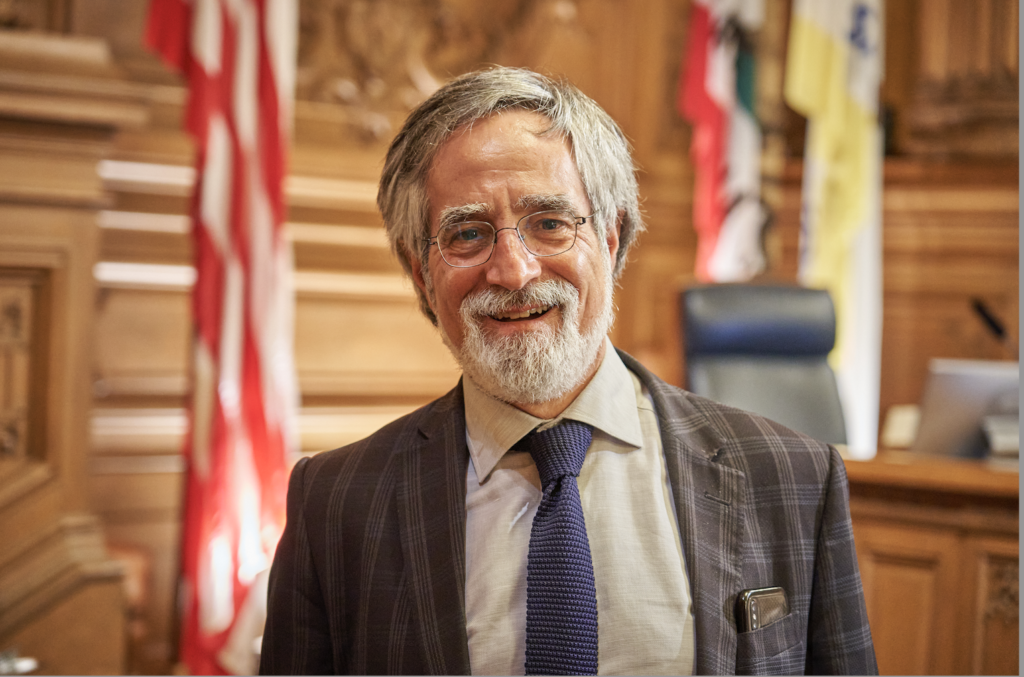The Board of Supes Land Use and Transportation Committee forwarded without recommendation a housing plan that all three committee members said was deeply problematic and two said the entire thing was based on fundamentally flawed assumptions.
But the city has little choice: Thanks to State Sen. Scott Wiener and Gov. Gavin Newsom, state regulators have the right to cut off the city’s transit and affordable housing funding if it doesn’t remove “obstacles” to higher profits for developers building luxury housing.

Sup. Dean Preston noted the bitter irony: “The premise that if the city doesn’t streamline housing for rich people it will cut housing for poor people is outrageous.”
But that’s what a series of bills sponsored by Wiener (and supported by Assemblymembers Phil Ting, David Chiu, and Matt Haney) have created: A system where luxury housing can cut corners and avoid fees, but affordable housing gets little or no support.
The Mayor’s Office made a few concessions: The bill would no longer allow the demolition of existing rent-controlled housing without a conditional use hearing. But it still allows new development to move forward in many cases without community notice or input.
Sup. Rafael Mandelman, who has sided with the Yimbys in the past and is hardly a housing obstructionist, said the measure takes the wrong approach to urban planning: “We should decide what we want, and then get out of the way,” he said. “This lets the developers decide what they want.”
Sup. Aaron Peskin said that the assumptions behind the state legislation and the local bill might turn out to be complely wrong: “London School of Economics and UCLA Professor Michael Storper cautions that the idea that blanked upzoning will cause affordability to trickle down is a flawed premise that will lead to bad urbanism that we will live to regret.”
That’s exactly the point here: The whole concept is built on the premise that the private market will solve our problems if we just give developers more incentive (that is, profit) to build luxury housing.
In the meantime, the city’s Housing Element, and the state’s RHNA goals, state that San Francisco needs 46,000 new units of affordable housing in the next seven years—and the mayor, the state legislators, and the governor have no plans at all to make that happen.
Instead, Newsom’s Office of Housing and Community Development sent the supes a letter saying that they had to approve Breed’s bill as originally presented—including the right to demolish existing rent-controlled housing—or the state might reject the city’s housing element and give developers the right to build anything they want anywhere.
“There is no discussion of the 46,000 units of affordable housing, which isn’t addressed in any legislation,” Preston said.
Dyan Ruiz, who works with People Power Media and is part of the Race and Equity in All Planning Coalition, noted that “the average person will not be able to afford the housing that is built. Nothing in this legislation would pass on the [developer] savings to buyers or renters.”
The full board will take this up Tuesday/28, and although the committee moved it to the board without recommendation, the outcome is almost predetermined.
The state Legislature, led by San Francisco representatives, and the governor, who used to be mayor of San Francisco, is prepared to turn the city over to luxury housing developers in the stated hope that neoliberal trickle-down economics, which has destroyed much of the middle class and created the worst economic inequality in a century, will make housing more affordable.
That’s happening at the same time, as Peskin noted, that the Legislature refused to repeal the Ellis Act or give cities the ability to protect existing vulnerable communities.
I suspect this will not end well.





